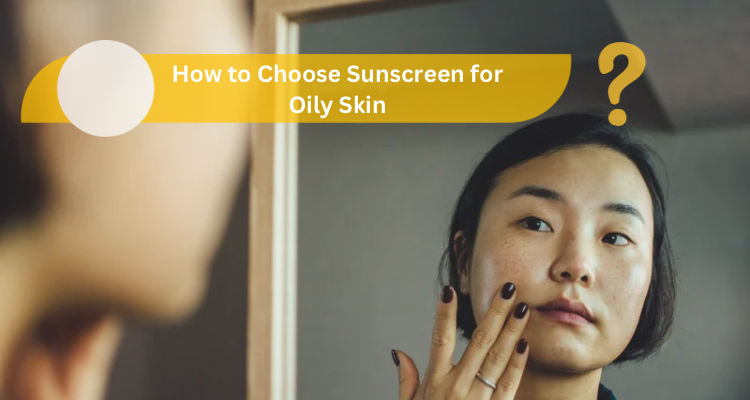In this comprehensive article, we reveal which ingredients to look for and which ingredients to avoid when looking for sunscreen suitable for oily skin, With expert tips and recommendations, we empower you to make well-informed choices and optimize the effectiveness of your sun protection regimen. Explore our guide and discover the ideal sunscreen match for your oily skin, ensuring a radiant and protected complexion that stands the test of time.
What to look for when choosing sunscreen for oily skin?
People with oily skin should look for sunscreens with specific ingredients that provide effective sun protection without exacerbating oiliness or causing breakouts. Here are some recommended ingredients for sunscreen suitable for oily skin: Non-comedogenic Formulas: Choose sunscreens labeled as non-comedogenic, meaning they are less likely to clog pores and cause acne.
- Mineral-Based Filters: Zinc oxide and titanium dioxide are mineral-based filters that provide broad-spectrum protection without contributing to oiliness. These ingredients sit on the skin's surface and act as a physical barrier against UV rays.
- Gel-Based Sunscreens: Look for sunscreen formulations that come in a gel base rather than a heavy cream. Gels are often lighter and less likely to feel greasy on the skin. The Isntree Sun Gel is a popular choice in this regard.
- Oil-Free Sunscreens: Opt for oil-free formulations that are specifically designed for oily or acne-prone skin. These sunscreens provide protection without adding extra oil to the skin.
- Matte Finish Sunscreens: Sunscreens with a matte finish can help control shine and excess oil throughout the day. They provide a smooth, non-greasy appearance.
- Water-Based Sunscreens: Water-based formulas are lightweight and absorb quickly, making them suitable for oily skin types. They provide hydration without adding extra oil.
- Glycerin: Glycerin is a humectant that attracts and retains moisture without contributing to oiliness. It can help maintain skin hydration.
- Silica: Silica is a mattifying agent that helps absorb excess oil, providing a smoother, shine-free finish.
- Niacinamide (Vitamin B3): Niacinamide has anti-inflammatory properties and helps regulate oil production. It can be beneficial for oily and acne-prone skin.
- Hyaluronic Acid: Hyaluronic acid is a hydrating ingredient that does not contribute to oiliness. It helps maintain skin moisture levels without clogging pores.
What to avoid when choosing sunscreen for oily skin?
When choosing a sunscreen for oily skin, it's essential to avoid certain ingredients and formulations that may contribute to excess oiliness, clogged pores, or breakouts. Here's what to avoid in sunscreens for oily skin:
- Heavy Creams and Thick Lotions: Avoid sunscreens with heavy, creamy, or thick formulations. These may feel greasy on the skin and can contribute to a shiny appearance.
- Comedogenic Ingredients: Steer clear of sunscreens containing comedogenic ingredients that are likely to clog pores, such as oleic acid and wheat germ oil. Look for labels that explicitly mention "non-comedogenic."
- Mineral Oil: Some sunscreens may contain mineral oil, which can be heavy and occlusive. Opt for oil-free or water-based formulations instead.
- Occlusive Ingredients: Avoid highly occlusive ingredients like petrolatum or paraffin, as they can trap oil and heat on the skin, potentially leading to breakouts.
- Fragrances and Irritants: Sunscreens with added fragrances or irritating ingredients may cause skin sensitivity and exacerbate oiliness. Choose fragrance-free or hypoallergenic options.
- Alcohol-Based Formulas: While some alcohol in sunscreen can aid in quick absorption, excessive amounts of alcohol can strip the skin of natural oils, leading to increased oil production. Look for formulations with minimal alcohol content.
- Thick Silicones: Heavy silicone-based ingredients, like dimethicone, may contribute to a heavy or greasy feeling on the skin. Opt for lighter formulations or gel-based sunscreens.
- Highly Shiny or Dewy Finishes: Sunscreens with a dewy or shiny finish can make oily skin appear oilier. Look for matte-finish sunscreens to control shine throughout the day.
- Sunscreens with Added Oils: Avoid sunscreens that contain additional oils, especially those that are comedogenic. Opt for oil-free or oil-control formulations.
- Inadequate SPF: Oily skin needs sun protection as much as any other skin type. Avoid choosing sunscreens with inadequate SPF levels. Opt for at least SPF 30 for daily use.
However, it is important to note that each person is unique and what works for one person may not work for another. It might be worth testing different products to see which one works best for your skin.
And don't forget, even if you have oily skin, it's still important to keep it well-hydrated and protected from the sun.
Here are some examples of brands that offer sunscreens suitable for oily skin. However, I recommend that you check product labels to make sure they contain the ingredients I mentioned to you earlier.
La Roche-Posay Anthelios Ultra-Light Mineral Sunscreen SPF 50: This mineral sunscreen is non-comedogenic and contains hyaluronic acid.
EltaMD UV Clear Facial Sunscreen Broad-Spectrum SPF 46: This product is specifically formulated for skin prone to acne, rosacea, and hyperpigmentation. It is light, oil-free, and contains niacinamide.
Neutrogena Clear Face Liquid Lotion Sunscreen for Acne-Prone Skin, Broad Spectrum SPF 30: Neutrogena is a trusted brand with affordable products. This sunscreen is lightweight, oil-free, and specially formulated for acne-prone skin.
Paula's Choice RESIST Super-Light Daily Wrinkle Defense SPF 30: This tinted sunscreen contains resveratrol, niacinamide, and powerful antioxidants.
Murad Oil and Pore Control Mattifier SPF 45 PA++++: It is an oil-free sunscreen with a high sun protection factor. It contains salicylic acid and niacinamide to help control oil.
It is important to remember that everyone is different and what works for one person may not work for another. You may need to try different products before finding the best one for your skin.
Be sure to consult a dermatologist or healthcare professional for personalized advice.



Share Your Opinion, Please